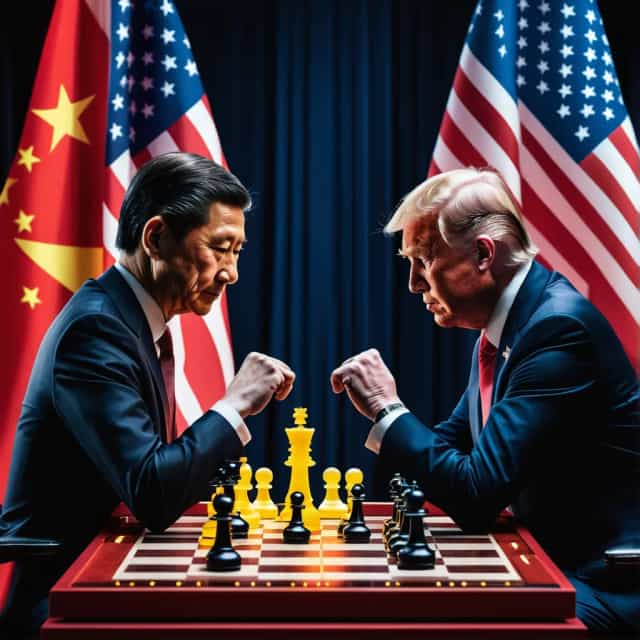
Image source: Block Media
Tokenized Securities Legislation Likely to Pass in November, but Concerns Over Global Competitiveness Persist
South Korea's Tokenized Securities Legislation Nears Approval
The South Korean National Assembly is set to deliberate and likely pass key legislation related to Security Token Offerings (STO) during its upcoming regular session this November. While this marks a significant milestone in institutionalizing tokenized securities, experts caution that limitations on issuance through private networks may hinder South Korea's global competitiveness in the rapidly evolving fintech and blockchain space.
As of mid-October, two critical bills concerning tokenized securities await approval within the National Assembly's Political Affairs Committee. The first is an amendment to the Electronic Securities Act, allowing distributed ledger technology (DLT) to be used for electronic securities issuance. The second is an amendment to the Capital Markets Act, aimed at reorganizing the regulation surrounding investment contract securities. Both bills have strong bipartisan support, increasing the likelihood that they will pass smoothly during November’s session.
Notably, these legislative efforts are prioritized by the recently formed "Economic Cooperation Council for People's Livelihood," a joint initiative involving the ruling and opposition leadership alongside the South Korean president. This council has identified the tokenized securities bills as vital to revitalizing the nation’s capital markets.
Despite optimism for passage, some analysts express concerns about potential disruptions stemming from the ongoing organizational restructuring of the Financial Supervisory Service. However, industry sentiment suggests these internal changes are unlikely to directly impact the legislation. Kim Jae-hak, a policy advisor at the Korea Financial Investment Association, remarked that, "These tokenized securities bills are the result of prolonged and extensive discussions. Given their key role in revitalizing capital markets, their passage should face little resistance."
Legislative Bottlenecks: Is Awareness Among Lawmakers Adequate?
One key reason behind the legislative delay, despite bipartisan agreement, appears to be the absence of urgency within the National Assembly’s broader legislative priorities. Lawmakers have reportedly struggled to fully grasp the complexities of tokenized securities and their potential to reshape market structures. Seo Byung-yoon, head of research at DSRV, highlighted this issue: "The tokenized securities bills are not seen as a legislative priority for the National Assembly due to insufficient awareness among lawmakers, which has delayed their deliberations."
The Impact of a Closed Network Structure on Global Competitiveness
If passed, the proposed framework will represent a groundbreaking institutional development in South Korea’s financial landscape. It broadens tokenization from select investment contract securities under existing guidelines to a wide range of securities defined under the Capital Markets Act, including debt securities, equity securities, and derivative-linked securities. Furthermore, the legal acceptance of blockchain records for security tokens signifies a transformative leap for capital markets.
However, significant concerns regarding South Korea’s regulatory approach persist, particularly its reliance on token issuance within "private networks." These networks must be pre-approved by financial authorities and managed by authorized institutions—a sharp departure from global trends where tokenized securities and real-world assets (RWA) are increasingly issued via open, decentralized networks.
"Globally, the tokenization of real-world assets on open networks is becoming the norm," said Bok Jin-sol, a researcher at Populous. He warned that South Korea’s closed network structure may deter international investors and limit the ability to attract foreign capital. Without access to open networks, South Korean tokenized securities may be unable to fully participate in the burgeoning global markets for blockchain-based assets.
Liquidity is another pressing concern for securities issued within private networks. Open networks have proven to provide superior scalability and liquidity absorption. Major stablecoins, which are ubiquitous in open networks, are expected to drive the growth of the stablecoin market to KRW 3,000 trillion (approximately USD 2.2 trillion) by 2030. Hong Jae-seok, a senior researcher at Shinhan Investment & Securities, noted, “Liquidity tends to increase significantly for tokens issued and traded on open networks. In contrast, private networks inherently limit access and face challenges in absorbing liquidity effectively.”
Looking Ahead: South Korea’s STO Framework Needs Evolvement
While the impending passage of the tokenized securities legislation is expected to lay a foundation for institutional tokenization in South Korea, the constraints of the current framework remain a critical issue. Industry experts emphasize that unless South Korea’s regulatory approach evolves toward openness and scalability, it risks losing ground to jurisdictions like the United States. U.S. markets have made considerable advancements in tokenizing assets through decentralized platforms, paving the way for rapid adoption and integration of blockchain into mainstream financial systems.
South Korea’s closed network strategy, though potentially secure, risks isolating its capital markets from global innovation and investment opportunities. As the world moves swiftly toward tokenizing assets via open networks, decisively addressing these limitations will be imperative for South Korea to remain competitive in the fast-changing landscape of tokenized finance. The upcoming regular session in November will prove crucial as policymakers determine the long-term trajectory for the nation’s capital markets.










